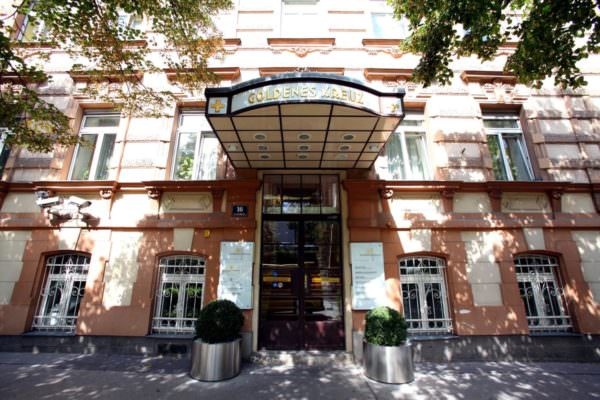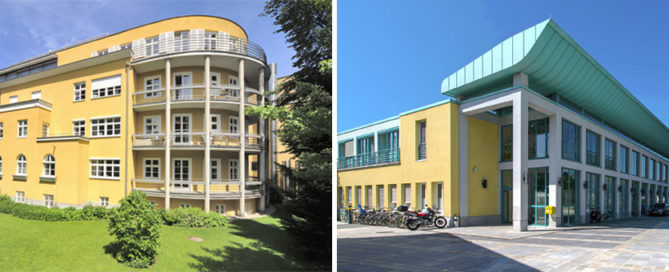Prostate Cancer
In the United States (U.S.), prostate cancer is the most common cancer in men according to the American Cancer Society , but it is also treatable if found in the early stages.
What Is Prostate Cancer?
Prostate cancer affects the prostate gland, the gland that produces some of the fluid in semen and plays a role in urine control in men.
The prostate gland is located below the bladder and in front of the rectum.
Prostate cancer types
The type of treatment offered depends on how advanced the prostate cancer is. This is known as the stage of cancer.
- Stage 1: The cancer is smaller than one half of the prostate and is contained within the gland. This is known as localized prostate cancer.
- Stage 2: The cancer is larger than one half of the prostate, but is still located within the gland. This is also known as localized prostate cancer.
- Stage 3: The cancer has broken through the outer layer of the prostate and may have spread into the seminal vesicles, the tubes that carry semen. This is known as locally advanced prostate cancer.
- Stage 4: The cancer has spread to another part of the body. This may be nearby lymph nodes or organs such as the rectum or bladder, or the pelvis, bone, lungs or liver. This is known as advanced or metastatic prostate cancer.
Prostate cancer symptoms
There are usually no symptoms during the early stages of prostate cancer.
If symptoms appear, they usually involve one or more of the following:
- frequent urges to urinate, including at night;
- difficulty commencing and maintaining urination;
- blood in the urine;
- painful urination and, less commonly, ejaculation;
- difficulty achieving or maintaining an erection may be difficult.
Advanced prostate cancer can involve the following symptoms:
- bone pain, often in the spine, femur, pelvis, or ribs;
- bone fractures.
If the cancer spreads to the spine and compresses the spinal cord, there may be:
- leg weakness;
- urinary incontinence;
- fecal incontinence.
A doctor will carry out a physical examination and enquire about any ongoing medical history. If the patient has symptoms, or if a routine blood test shows abnormally high PSA levels, further examinations may be requested.
Tests may include:
- a digital rectal examination, in which a doctor will manually check for any abnormalities of the prostate with their finger;
- a biomarker test checking the blood, urine, or body tissues of a person with cancer for chemicals unique to individuals with cancer.
If these tests show abnormal results, further tests will include:
- a PCA3 test examining the urine for the PCA3 gene only found in prostate cancer cells;
- a transrectal ultrasound scan providing imaging of the affected region using a probe that emits sounds;
- a biopsy, or the removal of 12 to 14 small pieces of tissue from several areas of the prostate for examination under a microscope.
These will help confirm the stage of the cancer, whether it has spread, and what treatment is appropriate.
To track any spread, or metastasis, doctors may use a bone, CT scan, or MRI scan.
Staging will take into account the size and extent of the tumor and the scale of the metastasis. At Stage 0, the tumor has neither spread from the prostate gland nor invaded deeply into it. At Stage IV, the cancer has spread to distant sites and organs.
Prostate cancer diagnosis
Regular testing is crucial as the cancer needs to be diagnosed before metastasis.
It usually starts in the glandular cells. This is known as adenocarcinoma. Tiny changes occur in the shape and size of the prostate gland cells, known as prostatic intraepithelial neoplasia (PIN). This tends to happen slowly and does not show symptoms until further into the progression.
Nearly 50 percent of all men over the age of 50 years have PIN. High-grade PIN is considered pre-cancerous, and it requires further investigation. Low-grade PIN is not a cause for concern.
Prostate cancer can be successfully treated if it is diagnosed before metastasis, but if it spreads, it is more dangerous. It most commonly spreads to the bones.
Prostate cancer treatment
Men diagnosed with prostate cancer may be offered surgery, depending on various factors. These include their age, overall health, and the stage of the cancer.
Not everyone who is diagnosed will be treated for prostate cancer, as the treatments come with side effects that can affect quality of life.
Because prostate cancer grows slowly, doctors may recommend watchful waiting or active surveillance, if the condition is not causing any symptoms. Watchful waiting or active surveillance mean being monitored closely for signs that the cancer is growing. Treatment will only be offered if and when it is necessary.
Official partner for top hospitals and clinics in Austria
Doctors treating you in Austria through AT-MED

Prof. Univ. Dr. Christian Singer, obstetrician-gynecologist

Prof. Univ. Dr. Johannes Drach, internist, specialist in haemato-oncology

Prof. Univ. Dr. Schillinger Martin, cardiologist, angiologist

Prof. Univ. Dr. Ulrich Steinhart, obstetrician-gynecologist

Dr. Rainer Kotz, Orthopedics and endoprotection
Testimonials
Fast! Efficient! Accessible! And a very communicative and enjoyable team. With help of AT MED I was consulted by Prof. Martin Schillinger. I felt in good hands.*
The AT MED team meant for me a second chance to live. In my country I wasn’t given any chance but the doctors in Austria made my recovery possible.*
In my situation the most important aspect was the fast response I got. I was scheduled and started my treatment within days from the first contact. With AT MED I received the best treatment and was treated with respect.*
*Disclaimer: All statements belong to our customers. Results and treatments may vary depending on each case.
When you contact AT-MED please keep in mind the following:
- Every medical consultation costs 150 – 300 EUR depending on the doctor’s specialization and the complexity of your medical case.
- Imagery interpretation costs 150 EUR.
- In order to answer your request in maximum 48 hours we need your complete medical record with information about previous interventions, treatments and therapies, smoking habits, allergies as well as important medical information about 1st degree relatives.
- Please send the entire archived file in a single e-mail (to office@austriamed.eu). Sending files in multiple e-mails as well as in several Whatsapp conversations slows down the diagnose process.
- For emergencies please call directly at 0786787878, at any hour.












